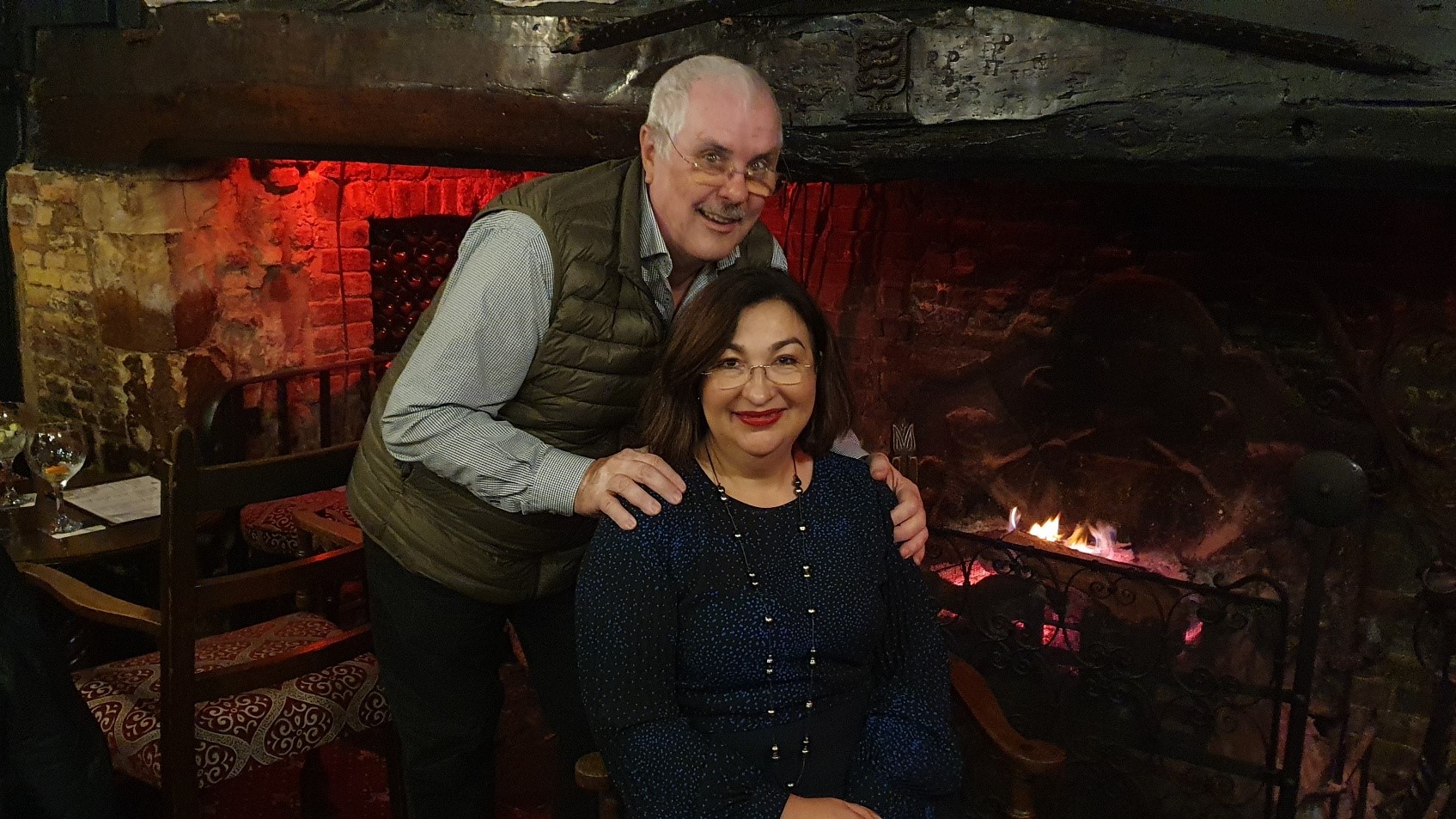Cook Islands condemns Russia’s invasion of neighbouring Ukraine
Saturday 26 February 2022 | Written by Rashneel Kumar | Published in Pacific Islands, Regional

Tatiana Burn, a Rarotonga-based Russian who grew up in Moscow, with her English Ukrainian husband Colin. PHOTO: SUPPLIED/22022506
Cook Islands has joined the growing voice of countries condemning Russia’s attack and the unnecessary loss of innocent lives in the Ukraine.�
On Thursday, Russia commenced a massive invasion of neighbouring Ukraine. More than 100 Ukrainian soldiers and civilians have been killed in the fighting (as of yesterday).
In a statement, the Cook Islands Ministry of Foreign Affairs and Immigration said: “The Cook Islands join with others in condemning Russia’s unprovoked invasion of the Ukraine. We call on Russia to end the hostilities and violations of the international rule of law.”
“Our thoughts and prayers are with the Ukraine and her people at this time. It is our hope Russia will heed calls to cease military operations in the Ukraine and withdraw immediately before there is further loss of innocent lives.
“More than ever, diplomatic effort to de-escalate this situation is needed and we urge parties to return to dialogue.”
Tatiana Burn, a Rarotonga-based Russian who grew up in Moscow, says she is “absolutely ashamed, appalled and angered by this unjust war on independent Ukraine”.
“I can’t understand how 75 years after the end of Second World War where Russia lost 20 million of its citizens, where our fathers and grandfathers spilt their blood for the future peace, and I grew up with the hope that the war will never be repeated … I can’t believe that in 21st century under our eyes, this unjust war is taking place,” said Tatiana, who moved to Rarotonga in 1998 with her English Ukrainian husband Colin.
“I’m saying firmly no to war, hands off Ukraine and stop the world war criminals who are unleashing this. Ukraine has every right to self-determination and the modern international rules demand that other countries have respect to those rights.”
Tatiana is among thousands of Russians who have gone public with their opposition to the war, despite the risks that come with dissent on such a sensitive issue in Russia.
She applauded especially those in Russia, “because that could result in arrest and prison sentence under treason”.
According to The Guardian, more than 1800 people were arrested at rallies across the country on Thursday night as prominent Russians from the worlds of entertainment, business and journalism have risked their livelihoods in order to speak out.
Tatiana said: “Ethnically, my mother is Ukrainian and grandmother is from Ukraine, and my English husband is Ukrainian. We have deep ties with Ukraine people and over the years we have watched the Ukraine, and how they became independent by the will of the people. They wanted to have close ties to the European Union, that will have to be respected.”
The invasion of Ukraine is likely to have a significant impact on the Pacific, warns a senior USP academic.
Although geographically removed from the conflict the Pacific nations should be concerned about the negative effect this war will have on multilateralism, says Sandra Tarte, an Associate Professor at the University of the South Pacific and the Acting Head of the School for Law and Social Sciences.
“Multilateralism is on its knees, it’s in tatters,” Professor Tarte told RNZ. “Particularly for the smaller island countries, we really need multilateralism to protect ourselves.
“We don’t have power as such in the entire system. We rely on multilateralism and institutions like the UN and the rule of law.”
Professor Tarte also said that Pacific countries will feel an economic impact.
“We will see perhaps markets react, we will see confidence plummet,” she explained. “There might be supply chain issues with the oil markets.”
“We are all connected. Through this global supply chain, we will see potential effects.”
- Additional reporting RNZ




































